Social Media and the Value of Truth
Social Media and the Value of Truth
Edited by Berrin Beasley and Mitchell R. Haney
LEXINGTON BOOKS
Lanham Boulder New York Toronto Plymouth, UK
Published by Lexington Books
A wholly owned subsidiary of The Rowman & Littlefield Publishing Group, Inc.
4501 Forbes Boulevard, Suite 200, Lanham, Maryland 20706
www.rowman.com
10 Thornbury Road, Plymouth PL6 7PP, United Kingdom
Copyright 2013 by Lexington Books
All rights reserved. No part of this book may be reproduced in any form or by any electronic or mechanical means, including information storage and retrieval systems, without written permission from the publisher, except by a reviewer who may quote passages in a review.
British Library Cataloguing in Publication Information Available
Library of Congress Cataloging-in-Publication Data
Social media and the value of truth / edited by Berrin Beasley and Mitchell R. Haney.
pages cm.
Includes bibliographical references and index.
ISBN 978-0-7391-7412-8 (cloth : alk. paper) -- ISBN 978-0-7391-7413-5 (electronic)
1. Mass media--Moral and ethical aspects. 2. Social media--Moral and ethical aspects. I. Beasley, Berrin, 1970- II. Haney, Mitchell R., 1967
P94.S63 2013
302.23--dc23
2012040177
 The paper used in this publication meets the minimum requirements of American National Standard for Information Sciences Permanence of Paper for Printed Library Materials, ANSI/NISO Z39.48-1992.
The paper used in this publication meets the minimum requirements of American National Standard for Information Sciences Permanence of Paper for Printed Library Materials, ANSI/NISO Z39.48-1992.
Printed in the United States of America
Preface
This volume grew out of the Third Annual A. David Kline Symposium on Public Philosophy held in Jacksonville, Florida in the fall of 2010. The annual symposium, supported by the Florida Blue Center for Ethics, brings together leading scholars on an issue of public concern to discuss with their peers their views on said issue with the final aim of dissemination in the form of a volume such as this. The 2010 symposium brought together leading scholars from Communication, Journalism, and Philosophy to discuss issues on the role of social media in contemporary life with reference to its effects on the value of truth. This volume is the culmination of those discussions.
We would like to thank Dr. Alissa Swota, Co-Director of the Florida Blue Center for Ethics, for her continued support of the A. David Kline Symposium on Public Philosophy which laid the grounds for this volume. We want, in addition, to thank Dr. Hans Herbert Koegler, Chair of the Department of Philosophy and Religious Studies, and Dr. David Goff, Chair of Department of Communication, for all their support of this years symposium. We would also like to thank Jeannemarie Celentano and Robert Holtzman for all their help in logistical support throughout the event. I would like to personally thank Dr. Berrin Beasley for all her efforts both with regards to the symposium and to this volume. Her efforts are truly appreciated.
Mitchell R. Haney, Associate Professor of Philosophy and Co-Director of the Florida Blue Center for Ethics
Introduction
Berrin Beasley
A brief history of social media reminds us that it truly is a brief one, because social media have been with us less than twenty years. It was 1994 when TheGlobe.com introduced internet users to a place where they could customize their identity by sharing contact information and photos and interacting with others through chat rooms and instant messaging. Unfortunately, TheGlobe.com shuttered its site in 2008, another victim of MySpace and Facebook, but what it brought to the internet and its staggering number of users was a location for personal expression where others could experience that expression, whether by simply reading the content or participating in its creation.
In the eighteen years since TheGlobe first appeared, a surfeit of social networking sites has come and gone, taking with them bits and pieces of our lives. What have we learned from their arrivals and departures? That most social networking sites have short lives, and in return for participating in them we must shorten our lives accordingly. We are limited to brief status updates, 140-character tweets, and spurts of conversations using emoticons to convey feelings not easily expressed in truncated communication. Weve also learned that, for better or worse, social media affect us and our relationships with others and therefore require a deeper contemplation than the social media format itself allows. This book is intended to assist with that deeper contemplation.
The first section of the book addresses the ways in which we define ourselves or are defined by our social media use. Kathy Richardson explores the blurring of Erving Goffmans front-stage/back-stage personas on social media sites, concluding that this blurring raises issues about the ability of users to discern what is appropriate information and behavior for the front stage as opposed to that of the back stage. Deni Elliott writes about the ways in which social media sites literally define us and how our use of anonymity and pseudonymity are altered by the sites themselves.
The second section of the book explores the concept of authentic living. Paul Bloomfield examines individuals participation in massive multi-player online games like World of Warcraft and Second Life and how ones real life can become subjugated to the life of ones avatar. Mitch Haney also writes on the importance of living an authentic life and concludes that the very speed of social media use, a speed often defined by the site itself, prevents users from reflecting on their lives and making deliberate choices about the objects and projects for which they truly care. Vance Ricks examines some of the possible social and political consequences of gossip spread via social media and how the meaning of gossip may be affected by the very nature of social media.
The final section of the book is applied in purpose. It reflects the practical application of social media in a world saturated by professional media. Lee Wilkins addresses the concept of liquid journalism, where social media users share with traditional journalists the responsibility of gathering and exchanging information and of bringing back emotion to the news. Jane Kirtley ends the book with the reminder that no matter how entertaining or informing social media may be, there are always legal considerations related to its use, especially that of making money.
Social media may have developed from a desire for personal connection, but the result has become a complex account of mediated participation unparalleled by previous communication methods. These intricate individual and corporate media representations and practices call for careful consideration at this stage in the development of social media, which is what this book attempts to do in some small way. We have purposely crossed academic boundaries by bringing together scholarship from the disciplines of communication and philosophy to illustrate the far-reaching implications of this new expression format. By their very nature social media rapidly evolve, training users to quickly move on to the next new site. In some ways they redirect our presentation of self, in others our knowing of self. We hope that by focusing on a few of the issues surrounding social media use we may contribute to a better understanding of its ethical challenges.
Constructing an Online Identity
I
Kathy Brittain Richardson
Front-Stage and Back-Stage Kantian Ethics
Kathy Brittain Richardson
Promoting Truth and Trust in
Social Media Communities
Next page
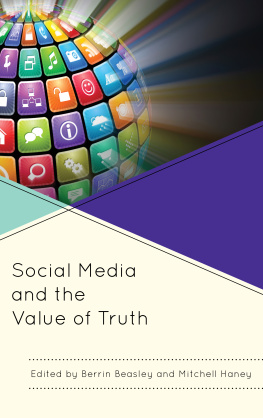


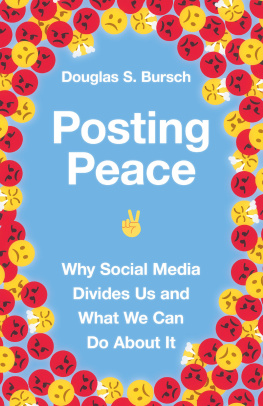
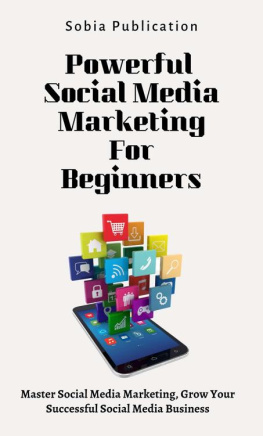
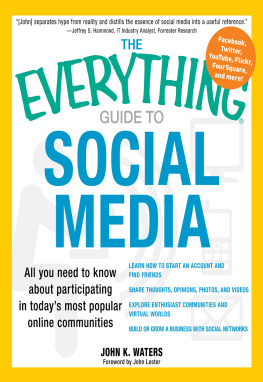
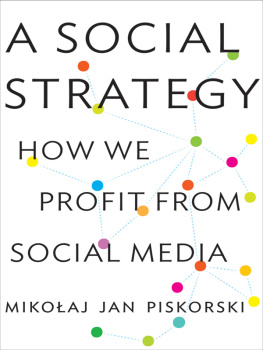

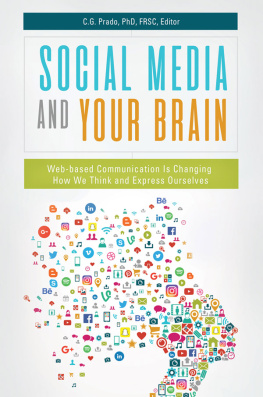
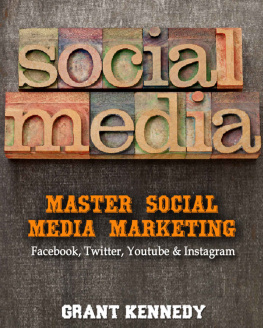
 The paper used in this publication meets the minimum requirements of American National Standard for Information Sciences Permanence of Paper for Printed Library Materials, ANSI/NISO Z39.48-1992.
The paper used in this publication meets the minimum requirements of American National Standard for Information Sciences Permanence of Paper for Printed Library Materials, ANSI/NISO Z39.48-1992.